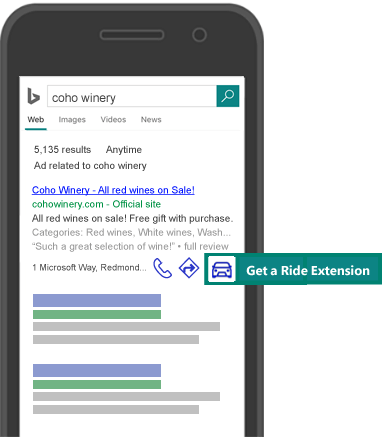Search takes to the cloud as users engage with new actions
Columnist Christi Olson describes the changing face of search engine results pages and how new technology and functionality is benefiting both searchers and advertisers.
Hold on tight! Search is continuing to evolve, from queries typed into a search box on a desktop to a conversational experience using more natural language on a mobile device.
A far cry from its early days, search is now pervasive, always with us no matter where we are: on our phones, in our cars, on our game consoles and on our TVs.
Search is no longer just sending users to websites; search engines are now surfacing information directly in the search results, learning from our interactions to help us take action and get tasks completed more quickly than ever before.
New actions in the SERPs and on the go
In a continuous effort to deliver highly relevant, contextual results, search engines are adding new functionality by the day. Users can make dinner reservations, check weather, convert measurements, do translations, comparison shop and get movie times — all directly within the search engine results pages (SERPs).
These actions benefit both users and search advertisers. As advertisers continue to work toward incorporating more structured data into their websites and ads, the engines can more easily surface information in new ad formats. This enables the engines to front-load the SERPs with business profile information such as business hours, click-to-call, sitelinks and deep linking into apps.
As searchers do more and more of their searching on the go, engines are leveraging cloud and mobile technology to deliver innovative experiences. Engines are also integrating with third-party sources to support hyper-relevant, hyper-fast activities.
Below are some recent examples of new developments that are benefiting searchers and advertisers alike:
Catch an Uber
Bing’s “Get a Ride” icon appears on business iOS mobile listings and allows searchers to catch an Uber ride directly to a business. The link will auto-populate a searcher’s location and destination, then signal Uber for a ride. (Disclosure: Microsoft Bing is my employer.)
This is a great example of how a business’s structured data from their location extensions allows for creative ad formatting within the engines.
Order a pizza
Amazon Echo’s virtual assistant, Alexa, allows searchers to order a pizza through a “home automation hub.” It is a 100-percent voice-commanded interaction through integration with a third-party app from Domino’s. It does require setting up an online pizza profile and payment info, but this new technology redefines the possibilities of a voice query.
Book a hotel
Google’s Hotel Product Ads (HPAs) appear on both desktop and mobile devices to help users quickly find and price comparison shop for a hotel — all within the SERPs. It auto-populates hotels based on your location and offers advanced filtering for price, quality, ratings and deals. Then, you can choose to complete the booking process by clicking through to the appropriate website.
By placing this functionality directly in the SERPs, search engines remove a step for users, easing the booking process. This relatively new ad format brings us one step closer to being able to book a hotel directly in the SERP. Such streamlined functionality showcases the realm of possibilities across other industries.
The future of search is here
Search is quickly redefining itself as an always-on participatory partner. Users are enjoying a new level of search that goes far beyond returning links on a page — we’re moving toward streamlining processes to help users take actions.
Advertisers should be sure to maintain their business profiles within the engines and continue to leverage structured data and data feeds to support new and innovative search experiences. You never know what opportunities the future holds!
Opinions expressed in this article are those of the guest author and not necessarily Search Engine Land. Staff authors are listed here.
Related stories
New on Search Engine Land

